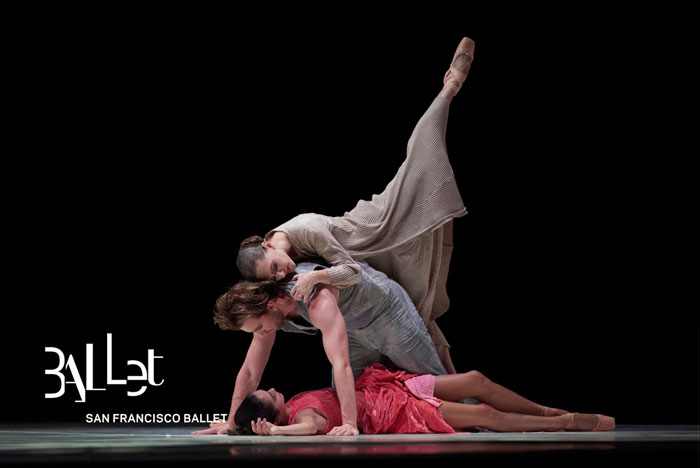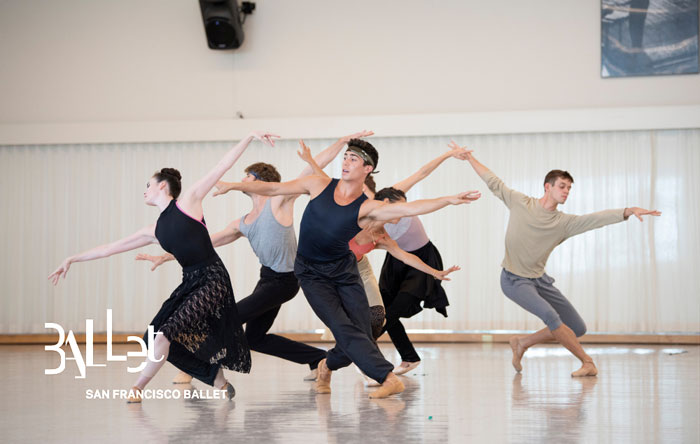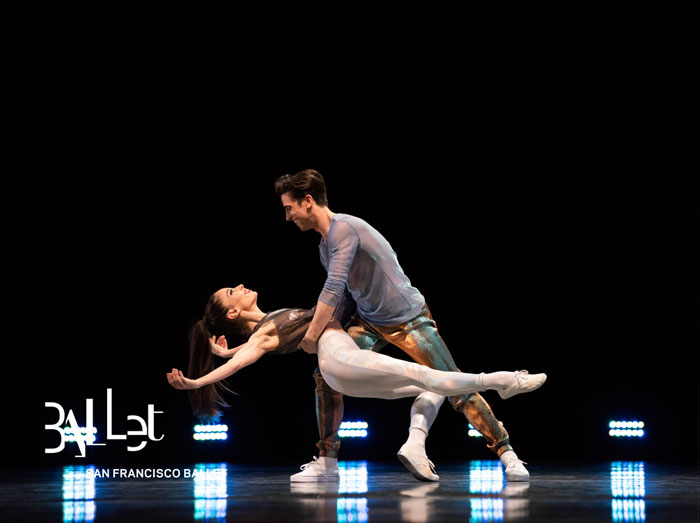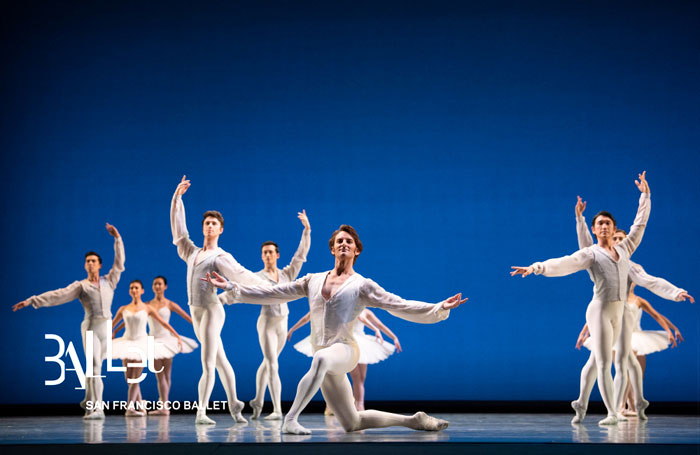
San Francisco Ballet produces a fascinating display of dance this week, as it opens the second and third programs of its 2019 season – presenting six ballets which highlight the versatility of the Company’s dancers, and illustrate the wealth of diversity in its repertoire.
The first of these – entitled Kaleidoscope – opens with a Balanchine classic, Divertimento No 15, which the choreographer set to that particular work by Mozart. The choreographer considered this to be the finest divertimento ever written, and the result is a real Balanchine showcase – traditional in style, yet bursting with elements of the creative genius for which he’s well known, his sparkling choreography brilliantly reflecting the mood of the music.

LA-based choreographer Benjamin Millepied (founder of the LA Dance Project) selected a Beethoven Piano Sonata (No 23 in F minor) for his ballet, Appassionata – which receives its West Coast premiere this week. Appassionata was first performed by the Paris Opera Ballet in 2016, under its original title, La Nuit S’Achève (The Night Ends), and the focus of the work is the the range of emotions experienced in love. These are portrayed by three couples over the timespan of an evening, which starts out with a degree of formality, but as it progresses, the formality falls away, and while there are moments of quiet intimacy, tenderness and playfulness, the dancing also becomes wilder and more tempestuous.

The final work in the program, Justin Peck’s Hurry Up, We’re Dreaming, was one of the successes of San Francisco Ballet’s 2018 Unbound festival of New Works. Commissioned for the Company, its dancers are in casual streetwear and sneakers, with choreography showing a decided inclination towards athleticism. Hurry Up, We’re Dreaming is set to the music of LA-based electronic band M83, and – as the name suggests – is based on “the way that we dream as human beings”, says Peck. Appropriately, the inspiration for this work was San Francisco itself, the ideas formulating as Peck walked around the city listening to the music of M83.
In Space & Time, the next program of the season, features another success story of the Outbound Festival – Cathy Marston’s Snowblind, which is teamed with Helgi Tomasson’s The Fifth Season, and Harald Lander’s Études – last seen in performance by the Company in 1999.
Created for San Francisco Ballet’s 2006 Repertory Season, The Fifth Season features the music of contemporary Welsh musician and composer Karl Jenkins – now Sir Karl Jenkins – his String Quartet No 2, together with a largo from his immensely popular Palladio. The score takes us on a journey through time and space, which includes a mesmerizing, almost minimalist, theme, a delightful tango, a Baroque-style air, and an elegant waltz – presenting a fascinating choreographic challenge.
Audiences will no doubt be thrilled by the inclusion of Snowblind in this program. This is a retelling of Edith Wharton’s best-known work, Ethan Frome, which Cathy Marston has brilliantly transformed into a highly emotional ballet, set against the snowstorms of mid-winter Massachusetts. Recounting the tale of a passionate but doomed love triangle, Snowblind’s dramatic theme is enhanced by a Philip Feeney score which features an arrangement of pieces by Amy Beach and Arthur Foote (both contemporaries of Wharton’s and members of the group known as the Boston Six), as well as Estonian composer Arvo Pärt. The pathos of this work is deeply moving.

In complete contrast is Harald Lander’s Études. Lander was a Danish dancer, choreographer and one-time artistic director of the Royal Danish Ballet who is credited with rebuilding that company into “the superb performing organization that it is today” (Encyclopaedia Britannica). Created in 1948, Études is essentially a series of variations that throw the spotlight firmly on the techniques of classical ballet – showing the sort of exercises that every ballet dancer performs at the start of each day in the studio, and which gradually transform into an extravaganza of dance. Set to music by composer Knudåge Riisager, who orchestrated Carl Czerny’s Études for Piano, the work features over 40 dancers in a brilliant display of technical skill, stylishly woven into a fascinating showcase of balletic beauty.
Kaleidoscope runs at the War Memorial Opera House from February 12th to 23rd, alternating with performances of In Space & Time which runs from February 14th to 24th. In both programs, the San Francisco Ballet Orchestra is led by Martin West, acknowledged as one of the foremost conductors of ballet today.
More information on these performances and on reserving tickets can be found on the San Francisco Ballet website.
Information sourced from:
San Francisco Ballet program notes
AllMusic
The George Balanchine Trust
Benjamin Millepied
Encyclopaedia Britannica – Edith Wharton
Encyclopaedia Britannica
